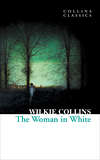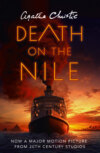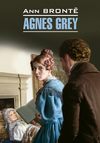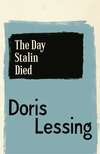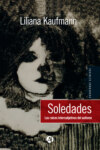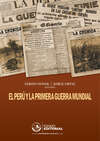Kitabı oku: «The Woman in White», sayfa 4
VII
My conductor led me upstairs into a passage which took us back to the bedchamber in which I had slept during the past night; and opening the door next to it, begged me to look in.
“I have my master’s orders to show you your own sitting-room, sir,” said the man, “and to inquire if you approve of the situation and the light.”
I must have been hard to please, indeed, if I had not approved of the room, and of everything about it. The bow-window looked out on the same lovely view which I had admired, in the morning, from my bedroom. The furniture was the perfection of luxury and beauty; the table in the centre was bright with gaily bound books, elegant conveniences for writing, and beautiful flowers; the second table, near the window, was covered with all the necessary materials for mounting water-colour drawings, and had a little easel attached to it, which I could expand or fold up at will; the walls were hung with gaily tinted chintz; and the floor was spread with Indian matting in maize-colour and red. It was the prettiest and most luxurious little sitting-room I had ever seen; and I admired it with the warmest enthusiasm.
The solemn servant was far too highly trained to betray the slightest satisfaction. He bowed with icy deference when my terms of eulogy were all exhausted, and silently opened the door for me to go out into the passage again.
We turned a corner, and entered a long second passage, ascended a short flight of stairs at the end, crossed a small circular upper hall, and stopped in front of a door covered with dark baize. The servant opened this door, and led me on a few yards to a second; opened that also, and disclosed two curtains of pale sea-green silk hanging before us; raised one of them noiselessly; softly uttered the words, “Mr. Hartright,” and left me.
I found myself in a large, lofty room, with a magnificent carved ceiling, and with a carpet over the floor, so thick and soft that it felt like piles of velvet under my feet. One side of the room was occupied by a long book-case of some rare inlaid wood that was quite new to me. It was not more than six feet high, and the top was adorned with statuettes in marble, ranged at regular distances one from the other. On the opposite side stood two antique cabinets; and between them, and above them, hung a picture of the Virgin and Child, protected by glass, and bearing Raphael’s name on the gilt tablet at the bottom of the frame. On my right hand and on my left, as I stood inside the door, were chiffoniers and little stands in buhl and marquetterie, loaded with figures in Dresden china, with rare vases, ivory ornaments, and toys and curiosities that sparkled at all points with gold, silver, and precious stones. At the lower end of the room, opposite to me, the windows were concealed and the sunlight was tempered by large blinds of the same pale sea-green colour as the curtains over the door. The light thus produced was deliciously soft, mysterious, and subdued; it fell equally upon all the objects in the room; it helped to intensify the deep silence, and the air of profound seclusion that possessed the place; and it surrounded, with an appropriate halo of repose, the solitary figure of the master of the house, leaning back, listlessly composed, in a large easy-chair, with a reading-easel fastened on one of its arms, and a little table on the other.
If a man’s personal appearance, when he is out of his dressing-room, and when he has passed forty, can be accepted as a safe guide to his time of life—which is more than doubtful—Mr. Fairlie’s age, when I saw him, might have been reasonably computed at over fifty and under sixty years. His beardless face was thin, worn, and transparently pale, but not wrinkled; his nose was high and hooked; his eyes were of a dim greyish blue, large, prominent, and rather red round the rims of the eyelids; his hair was scanty, soft to look at, and of that light sandy colour which is the last to disclose its own changes towards grey. He was dressed in a dark frock-coat, of some substance much thinner than cloth, and in waistcoat and trousers of spotless white. His feet were effeminately small, and were clad in buff-coloured silk stockings, and little womanish bronze-leather slippers. Two rings adorned his white delicate hands, the value of which even my inexperienced observation detected to be all but priceless. Upon the whole, he had a frail, languidly-fretful, over-refined look—something singularly and unpleasantly delicate in its association with a man, and, at the same time, something which could by no possibility have looked natural and appropriate if it had been transferred to the personal appearance of a woman. My morning’s experience of Miss Halcombe had predisposed me to be pleased with everybody in the house; but my sympathies shut themselves up resolutely at the first sight of Mr. Fairlie.
On approaching nearer to him, I discovered that he was not so entirely without occupation as I had at first supposed. Placed amid the other rare and beautiful objects on a large round table near him, was a dwarf cabinet in ebony and silver, containing coins of all shapes and sizes, set out in little drawers lined with dark purple velvet. One of these drawers lay on the small table attached to his chair; and near it were some tiny jeweller’s brushes, a wash-leather “stump,” and a little bottle of liquid, all waiting to be used in various ways for the removal of any accidental impurities which might be discovered on the coins. His frail white fingers were listlessly toying with something which looked, to my uninstructed eyes, like a dirty pewter medal with ragged edges, when I advanced within a respectful distance of his chair, and stopped to make my bow.
“So glad to possess you at Limmeridge, Mr. Hartright,” he said in a querulous, croaking voice, which combined, in anything but an agreeable manner, a discordantly high tone with a drowsily languid utterance. “Pray sit down. And don’t trouble yourself to move the chair, please. In the wretched state of my nerves, movement of any kind is exquisitely painful to me. Have you seen your studio? Will it do?”
“I have just come from seeing the room, Mr. Fairlie; and I assure you—”
He stopped me in the middle of the sentence, by closing his eyes, and holding up one of his white hands imploringly. I paused in astonishment; and the croaking voice honoured me with this explanation—
“Pray excuse me. But could you contrive to speak in a lower key? In the wretched state of my nerves, loud sound of any kind is indescribable torture to me. You will pardon an invalid? I only say to you what the lamentable state of my health obliges me to say to everybody. Yes. And you really like the room?”
“I could wish for nothing prettier and nothing more comfortable,” I answered, dropping my voice, and beginning to discover already that Mr. Fairlie’s selfish affectation and Mr. Fairlie’s wretched nerves meant one and the same thing.
“So glad. You will find your position here, Mr. Hartright, properly recognised. There is none of the horrid English barbarity of feeling about the social position of an artist in this house. So much of my early life has been passed abroad, that I have quite cast my insular skin in that respect. I wish I could say the same of the gentry—detestable word, but I suppose I must use it—of the gentry in the neighbourhood. They are sad Goths in Art, Mr. Hartright. People, I do assure you, who would have opened their eyes in astonishment, if they had seen Charles the Fifth pick up Titian’s brush for him. Do you mind putting this tray of coins back in the cabinet, and giving me the next one to it? In the wretched state of my nerves, exertion of any kind is unspeakably disagreeable to me. Yes. Thank you.”
As a practical commentary on the liberal social theory which he had just favoured me by illustrating, Mr. Fairlie’s cool request rather amused me. I put back one drawer and gave him the other, with all possible politeness. He began trifling with the new set of coins and the little brushes immediately; languidly looking at them and admiring them all the time he was speaking to me.
“A thousand thanks and a thousand excuses. Do you like coins? Yes. So glad we have another taste in common besides our taste for Art. Now, about the pecuniary arrangements between us—do tell me—are they satisfactory?”
“Most satisfactory, Mr. Fairlie.”
“So glad. And—what next? Ah! I remember. Yes. In reference to the consideration which you are good enough to accept for giving me the benefit of your accomplishments in art, my steward will wait on you at the end of the first week, to ascertain your wishes. And—what next? Curious, is it not? I had a great deal more to say: and I appear to have quite forgotten it. Do you mind touching the bell? In that corner. Yes. Thank you.”
I rang; and a new servant noiselessly made his appearance—a foreigner, with a set smile and perfectly brushed hair—a valet every inch of him.
“Louis,” said Mr. Fairlie, dreamily dusting the tips of his fingers with one of the tiny brushes for the coins, “I made some entries in my tablettes this morning. Find my tablettes. A thousand pardons, Mr. Hartright, I’m afraid I bore you.”
As he wearily closed his eyes again, before I could answer, and as he did most assuredly bore me, I sat silent, and looked up at the Madonna and Child by Raphael. In the meantime, the valet left the room, and returned shortly with a little ivory book. Mr. Fairlie, after first relieving himself by a gentle sigh, let the book drop open with one hand, and held up the tiny brush with the other, as a sign to the servant to wait for further orders.
“Yes. Just so!” said Mr. Fairlie, consulting the tablettes. “Louis, take down that portfolio.” He pointed, as he spoke, to several portfolios placed near the window, on mahogany stands. “No. Not the one with the green back—that contains my Rembrandt etchings, Mr. Hartright. Do you like etchings? Yes? So glad we have another taste in common. The portfolio with the red back, Louis. Don’t drop it! You have no idea of the tortures I should suffer, Mr. Hartright, if Louis dropped that portfolio. Is it safe on the chair? Do you think it safe, Mr. Hartright? Yes? So glad. Will you oblige me by looking at the drawings, if you really think they are quite safe. Louis, go away. What an ass you are. Don’t you see me holding the tablettes? Do you suppose I want to hold them? Then why not relieve me of the tablettes without being told? A thousand pardons, Mr. Hartright; servants are such asses, are they not? Do tell me—what do you think of the drawings? They have come from a sale in a shocking state—I thought they smelt of horrid dealers’ and brokers’ fingers when I looked at them last. Can you undertake them?”
Although my nerves were not delicate enough to detect the odour of plebeian fingers which had offended Mr. Fairlie’s nostrils, my taste was sufficiently educated to enable me to appreciate the value of the drawings, while I turned them over. They were, for the most part, really fine specimens of English water-colour art; and they had deserved much better treatment at the hands of their former possessor than they appeared to have received.
“The drawings,” I answered, “require careful straining and mounting; and, in my opinion, they are well worth—”
“I beg your pardon,” interposed Mr. Fairlie. “Do you mind my closing my eyes while you speak? Even this light is too much for them. Yes?”
“I was about to say that the drawings are well worth all the time and trouble—”
Mr. Fairlie suddenly opened his eyes again, and rolled them with an expression of helpless alarm in the direction of the window.
“I entreat you to excuse me, Mr. Hartright,” he said in a feeble flutter. “But surely I hear some horrid children in the garden—my private garden—below?”
“I can’t say, Mr. Fairlie. I heard nothing myself.”
“Oblige me—you have been so very good in humouring my poor nerves—oblige me by lifting up a corner of the blind. Don’t let the sun in on me, Mr. Hartright! Have you got the blind up? Yes? Then will you be so very kind as to look into the garden and make quite sure?”
I complied with this new request. The garden was carefully walled in, all round. Not a human creature, large or small, appeared in any part of the sacred seclusion. I reported that gratifying fact to Mr. Fairlie.
“A thousand thanks. My fancy, I suppose. There are no children, thank Heaven, in the house; but the servants (persons born without nerves) will encourage the children from the village. Such brats—oh, dear me, such brats! Shall I confess it, Mr. Hartright?—I sadly want a reform in the construction of children. Nature’s only idea seems to be to make them machines for the production of incessant noise. Surely our delightful Raffaello’s conception is infinitely preferable?”
He pointed to the picture of the Madonna, the upper part of which represented the conventional cherubs of Italian Art, celestially provided with sitting accommodation for their chins, on balloons of buff-coloured cloud.
“Quite a model family!” said Mr. Fairlie, leering at the cherubs. “Such nice round faces, and such nice soft wings, and—nothing else. No dirty little legs to run about on, and no noisy little lungs to scream with. How immeasurably superior to the existing construction! I will close my eyes again, if you will allow me. And you really can manage the drawings? So glad. Is there anything else to settle? if there is, I think I have forgotten it. Shall we ring for Louis again?”
Being, by this time, quite as anxious, on my side, as Mr. Fairlie evidently was on his, to bring the interview to a speedy conclusion, I thought I would try to render the summoning of the servant unnecessary, by offering the requisite suggestion on my own responsibility.
“The only point, Mr. Fairlie, that remains to be discussed,” I said, “refers, I think, to the instruction in sketching which I am engaged to communicate to the two young ladies.”
“Ah! just so,” said Mr. Fairlie. “I wish I felt strong enough to go into that part of the arrangement—but I don’t. The ladies who profit by your kind services, Mr. Hartright, must settle, and decide, and so on, for themselves. My niece is fond of your charming art. She knows just enough about it to be conscious of her own sad defects. Please take pains with her. Yes. Is there anything else? No. We quite understand each other—don’t we? I have no right to detain you any longer from your delightful pursuit—have I? So pleasant to have settled everything—such a sensible relief to have done business. Do you mind ringing for Louis to carry the portfolio to your own room?”
“I will carry it there myself, Mr. Fairlie, if you will allow me.”
“Will you really? Are you strong enough? How nice to be so strong! Are you sure you won’t drop it? So glad to possess you at Limmeridge, Mr. Hartright. I am such a sufferer that I hardly dare hope to enjoy much of your society. Would you mind taking great pains not to let the doors bang, and not to drop the portfolio? Thank you. Gently with the curtains, please—the slightest noise from them goes through me like a knife. Yes. Good morning!”
When the sea-green curtains were closed, and when the two baize doors were shut behind me, I stopped for a moment in the little circular hall beyond, and drew a long, luxurious breath of relief. It was like coming to the surface of the water after deep diving, to find myself once more on the outside of Mr. Fairlie’s room.
As soon as I was comfortably established for the morning in my pretty little studio, the first resolution at which I arrived was to turn my steps no more in the direction of the apartments occupied by the master of the house, except in the very improbable event of his honouring me with a special invitation to pay him another visit. Having settled this satisfactory plan of future conduct in reference to Mr. Fairlie, I soon recovered the serenity of temper of which my employer’s haughty familiarity and impudent politeness had, for the moment, deprived me. The remaining hours of the morning passed away pleasantly enough, in looking over the drawings, arranging them in sets, trimming their ragged edges, and accomplishing the other necessary preparations in anticipation of the business of mounting them. I ought, perhaps, to have made more progress than this; but, as the luncheon-time drew near, I grew restless and unsettled, and felt unable to fix my attention on work, even though that work was only of the humble manual kind.
At two o’clock I descended again to the breakfast-room, a little anxiously. Expectations of some interest were connected with my approaching reappearance in that part of the house. My introduction to Miss Fairlie was now close at hand; and, if Miss Halcombe’s search through her mother’s letters had produced the result which she anticipated, the time had come for clearing up the mystery of the woman in white.
VIII
When I entered the room, I found Miss Halcombe and an elderly lady seated at the luncheon-table.
The elderly lady, when I was presented to her, proved to be Miss Fairlie’s former governess, Mrs. Vesey, who had been briefly described to me by my lively companion at the breakfast-table, as possessed of “all the cardinal virtues, and counting for nothing.” I can do little more than offer my humble testimony to the truthfulness of Miss Halcombe’s sketch of the old lady’s character. Mrs. Vesey looked the personification of human composure and female amiability. A calm enjoyment of a calm existence beamed in drowsy smiles on her plump, placid face. Some of us rush through life, and some of us saunter through life. Mrs. Vesey sat through life. Sat in the house, early and late; sat in the garden; sat in unexpected window-seats in passages; sat (on a campstool) when her friends tried to take her out walking; sat before she looked at anything, before she talked of anything, before she answered Yes or No to the commonest question—always with the same serene smile on her lips, the same vacantly-attentive turn of the head, the same snugly-comfortable position of her hands and arms, under every possible change of domestic circumstances. A mild, a compliant, an unutterably tranquil and harmless old lady, who never by any chance suggested the idea that she had been actually alive since the hour of her birth. Nature has so much to do in this world, and is engaged in generating such a vast variety of co-existent productions, that she must surely be now and then too flurried and confused to distinguish between the different processes that she is carrying on at the same time. Starting from this point of view, it will always remain my private persuasion that Nature was absorbed in making cabbages when Mrs. Vesey was born, and that the good lady suffered the consequences of a vegetable preoccupation in the mind of the Mother of us all.
“Now, Mrs. Vesey,” said Miss Halcombe, looking brighter, sharper, and readier than ever, by contrast with the undemonstrative old lady at her side, “what will you have? A cutlet?”
Mrs. Vesey crossed her dimpled hands on the edge of the table, smiled placidly, and said, “Yes, dear.”
“What is that opposite Mr. Hartright? Boiled chicken, is it not? I thought you liked boiled chicken better than cutlet, Mrs. Vesey?”
Mrs. Vesey took her dimpled hands off the edge of the table and crossed them on her lap instead; nodded contemplatively at the boiled chicken, and said, “Yes, dear.”
“Well, but which will you have, to-day? Shall Mr. Hartright give you some chicken? or shall I give you some cutlet?”
Mrs. Vesey put one of her dimpled hands back again on the edge of the table; hesitated drowsily, and said, “Which you please, dear.”
“Mercy on me! it’s a question for your taste, my good lady, not for mine. Suppose you have a little of both? and suppose you begin with the chicken, because Mr. Hartright looks devoured by anxiety to carve for you.”
Mrs. Vesey put the other dimpled hand back on the edge of the table; brightened dimly one moment; went out again the next; bowed obediently, and said, “If you please, sir.”
Surely a mild, a compliant, an unutterably tranquil and harmless old lady! But enough, perhaps, for the present, of Mrs. Vesey.
All this time, there were no signs of Miss Fairlie. We finished our luncheon; and still she never appeared. Miss Halcombe, whose quick eye nothing escaped, noticed the looks that I cast, from time to time, in the direction of the door.
“I understand you, Mr. Hartright,” she said; “you are wondering what has become of your other pupil. She has been downstairs, and has got over her headache; but has not sufficiently recovered her appetite to join us at lunch. If you will put yourself under my charge, I think I can undertake to find her somewhere in the garden.”
She took up a parasol lying on a chair near her, and led the way out, by a long window at the bottom of the room, which opened on to the lawn. It is almost unnecessary to say that we left Mrs. Vesey still seated at the table, with her dimpled hands still crossed on the edge of it; apparently settled in that position for the rest of the afternoon.
As we crossed the lawn, Miss Halcombe looked at me significantly, and shook her head.
“That mysterious adventure of yours,” she said, “still remains involved in its own appropriate midnight darkness. I have been all the morning looking over my mother’s letters, and I have made no discoveries yet. However, don’t despair, Mr. Hartright. This is a matter of curiosity; and you have got a woman for your ally. Under such conditions success is certain, sooner or later. The letters are not exhausted. I have three packets still left, and you may confidently rely on my spending the whole evening over them.”
Here, then, was one of my anticipations of the morning still unfulfilled. I began to wonder, next, whether my introduction to Miss Fairlie would disappoint the expectations that I had been forming of her since breakfast-time.
“And how did you get on with Mr. Fairlie?” inquired Miss Halcombe, as we left the lawn and turned into a shrubbery. “Was he particularly nervous this morning? Never mind considering about your answer, Mr. Hartright. The mere fact of your being obliged to consider is enough for me. I see in your face that he was particularly nervous; and, as I am amiably unwilling to throw you into the same condition, I ask no more.”
We turned off into a winding path while she was speaking, and approached a pretty summer-house, built of wood, in the form of a miniature Swiss chalet. The one room of the summer-house, as we ascended the steps of the door, was occupied by a young lady. She was standing near a rustic table, looking out at the inland view of moor and hill presented by a gap in the trees, and absently turning over the leaves of a little sketch-book that lay at her side. This was Miss Fairlie.
How can I describe her? How can I separate her from my own sensations, and from all that has happened in the later time? How can I see her again as she looked when my eyes first rested on her—as she should look, now, to the eyes that are about to see her in these pages?
The water-colour drawing that I made of Laura Fairlie, at an after period, in the place and attitude in which I first saw her, lies on my desk while I write. I look at it, and there dawns upon me brightly, from the dark greenish-brown background of the summer-house, a light, youthful figure, clothed in a simple muslin dress, the pattern of it formed by broad alternate stripes of delicate blue and white. A scarf of the same material sits crisply and closely round her shoulders, and a little straw hat of the natural colour, plainly and sparingly trimmed with ribbon to match the gown, covers her head, and throws its soft pearly shadow over the upper part of her face. Her hair is of so faint and pale a brown—not flaxen, and yet almost as light; not golden, and yet almost as glossy—that it nearly melts, here and there, into the shadow of the hat. It is plainly parted and drawn back over her ears, and the line of it ripples naturally as it crosses her forehead. The eyebrows are rather darker than the hair; and the eyes are of that soft, limpid, turquoise blue, so often sung by the poets, so seldom seen in real life. Lovely eyes in colour, lovely eyes in form—large and tender and quietly thoughtful—but beautiful above all things in the clear truthfulness of look that dwells in their inmost depths, and shines through all their changes of expression with the light of a purer and a better world. The charm—most gently and yet most distinctly expressed—which they shed over the whole face, so covers and transforms its little natural human blemishes elsewhere, that it is difficult to estimate the relative merits and defects of the other features. It is hard to see that the lower part of the face is too delicately refined away towards the chin to be in full and fair proportion with the upper part; that the nose, in escaping the aquiline bend (always hard and cruel in a woman, no matter how abstractedly perfect it may be), has erred a little in the other extreme, and has missed the ideal straightness of line; and that the sweet, sensitive lips are subject to a slight nervous contraction, when she smiles, which draws them upward a little at one corner, towards the cheek. It might be possible to note these blemishes in another woman’s face but it is not easy to dwell on them in hers, so subtly are they connected with all that is individual and characteristic in her expression, and so closely does the expression depend for its full play and life, in every other feature, on the moving impulse of the eyes.
Does my poor portrait of her, my fond, patient labour of long and happy days, show me these things? Ah, how few of them are in the dim mechanical drawing, and how many in the mind with which I regard it! A fair, delicate girl, in a pretty light dress, trifling with the leaves of a sketch-book, while she looks up from it with truthful, innocent blue eyes—that is all the drawing can say; all, perhaps, that even the deeper reach of thought and pen can say in their language, either. The woman who first gives life, light, and form to our shadowy conceptions of beauty, fills a void in our spiritual nature that has remained unknown to us till she appeared. Sympathies that lie too deep for words, too deep almost for thoughts, are touched, at such times, by other charms than those which the senses feel and which the resources of expression can realise. The mystery which underlies the beauty of women is never raised above the reach of all expression until it has claimed kindred with the deeper mystery in our own souls. Then, and then only, has it passed beyond the narrow region on which light falls, in this world, from the pencil and the pen.
Think of her as you thought of the first woman who quickened the pulses within you that the rest of her sex had no art to stir. Let the kind, candid blue eyes meet yours, as they met mine, with the one matchless look which we both remember so well. Let her voice speak the music that you once loved best, attuned as sweetly to your ear as to mine.
Let her footstep, as she comes and goes, in these pages, be like that other footstep to whose airy fall your own heart once beat time. Take her as the visionary nursling of your own fancy; and she will grow upon you, all the more clearly, as the living woman who dwells in mine.
Among the sensations that crowded on me, when my eyes first looked upon her—familiar sensations which we all know, which spring to life in most of our hearts, die again in so many, and renew their bright existence in so few—there was one that troubled and perplexed me: one that seemed strangely inconsistent and unaccountably out of place in Miss Fairlie’s presence.
Mingling with the vivid impression produced by the charm of her fair face and head, her sweet expression, and her winning simplicity of manner, was another impression, which, in a shadowy way, suggested to me the idea of something wanting. At one time it seemed like something wanting in her; at another, like something wanting in myself, which hindered me from understanding her as I ought. The impression was always strongest in the most contradictory manner, when she looked at me; or, in other words, when I was most conscious of the harmony and charm of her face, and yet, at the same time, most troubled by the sense of an incompleteness which it was impossible to discover. Something wanting, something wanting—and where it was, and what it was, I could not say.
The effect of this curious caprice of fancy (as I thought it then) was not of a nature to set me at my ease, during a first interview with Miss Fairlie. The few kind words of welcome which she spoke found me hardly self-possessed enough to thank her in the customary phrases of reply. Observing my hesitation, and no doubt attributing it, naturally enough, to some momentary shyness on my part, Miss Halcombe took the business of talking, as easily and readily as usual, into her own hands.
“Look there, Mr. Hartright,” she said, pointing to the sketch-book on the table, and to the little delicate wandering hand that was still trifling with it. “Surely you will acknowledge that your model pupil is found at last? The moment she hears that you are in the house, she seizes her inestimable sketch-book, looks universal Nature straight in the face, and longs to begin!”
Miss Fairlie laughed with a ready good-humour, which broke out as brightly as if it had been part of the sunshine above us, over her lovely face.
